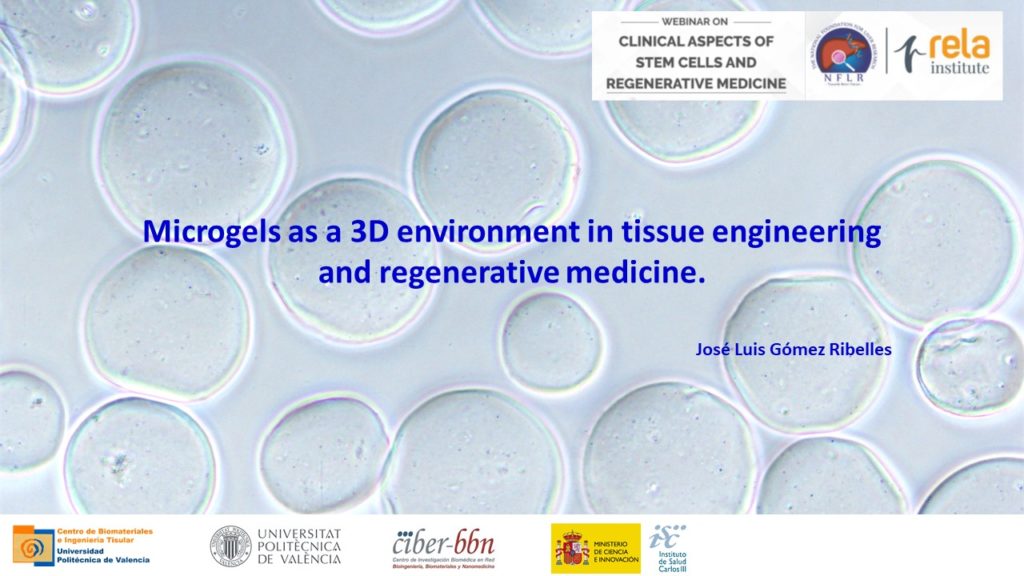Professor José Luis Gómez-Ribelles will talk tomorrow 27th of April about biomimetic microgels designed as cell environments in biomedical applications. This talk will be part of a webinar organised at the Rela Institute & Medical Centre in Chennai, India, on «Clinical aspects of stem cells and regenerative medicine«.

Prof Gómez-Ribelles talk is summarised below here:
The regeneration of a tissue or an organ using tissue engineering techniques requires the combination of three ingredients: a suitable source of cells, a supporting biomaterial capable of generating a biomimetic environment for them, and physical and chemical signalling that stimulate the cells to acquire or maintain the appropriate phenotype. Both in the in vitro culture and in the transplantation of cells to the organism, the microenvironment is key to determining cell fate. Many biomaterials have been developed as 3D cell support, the most frequent structures are macroporous scaffolds that house cells in their pores or hydrogels in which cells are encapsulated. An alternative to these systems are microgels. We call a microgel a dispersion of microspheres in an aqueous medium. Each particle may have gel properties of its own, but even if it does not, the whole system may have the consistency of a hydrogel because of the mobility of the microparticles in the liquid medium. The grafting on the microparticles surface of proteins or polysaccharides from the extracellular matrix of the tissue to be regenerated makes it possible to design the artificial environment mimicking the one found by the cells in vivo. On the other hand, by varying the volume fraction occupied by the microspheres, the consistency of the medium, soft or firm, and the transmission of mechanical stresses to the cells can be modulated. Thus, in this talk, we will present examples of application of biomimetic microgels as 3D culture platform for the expansion and differentiation of articular cartilage chondrocytes and mesenchymal stem cells. A disease model for Multiple Myeloma tumour cells is also presented. In this model cell response to delivered drugs is analyzed in order to understand the mechanisms of generation of drug resistance in patients. The use of microgels as injectable vehicle for cell transplant to the organism is also shown in the case of the regeneration of articular cartilage in vivo.
Acknowledgments: This work has been funded by the Spanish State Research Agency (AEI) through the project PID2019-106099RB-C41/AEI/10.13039/501100011033
